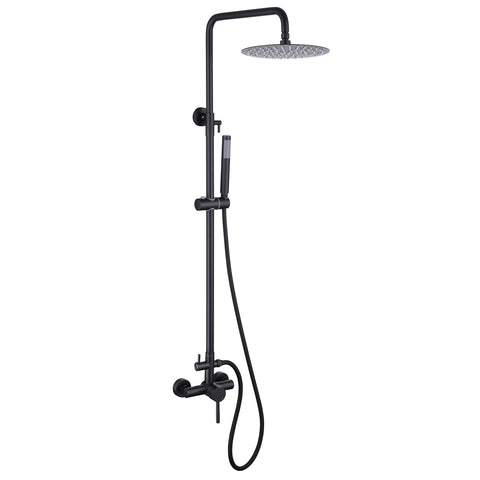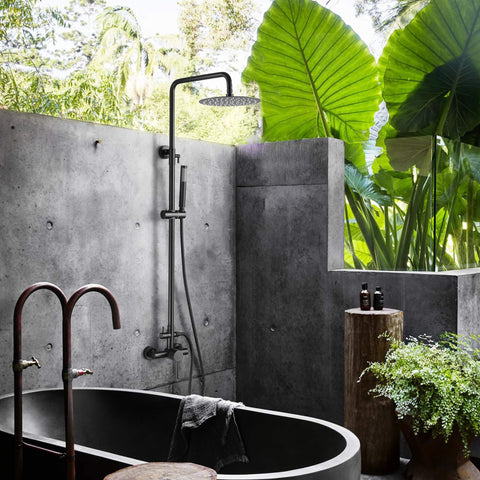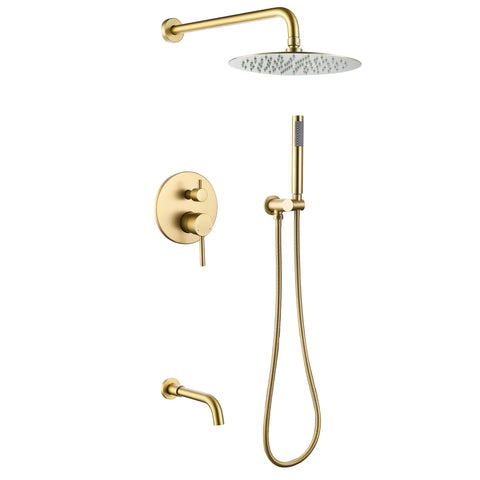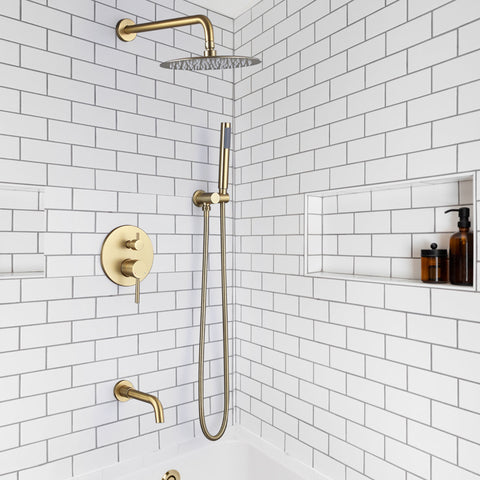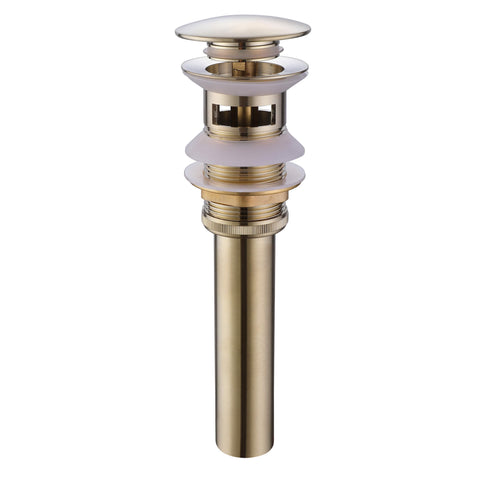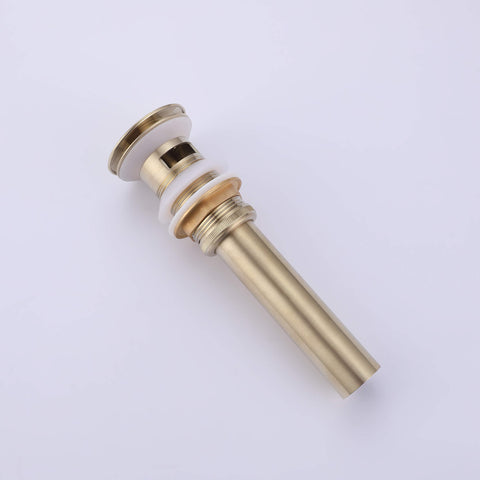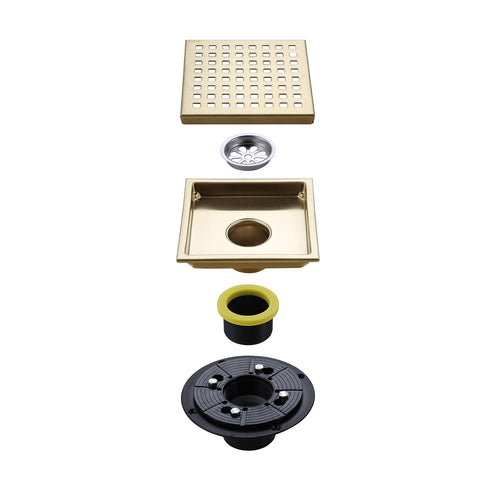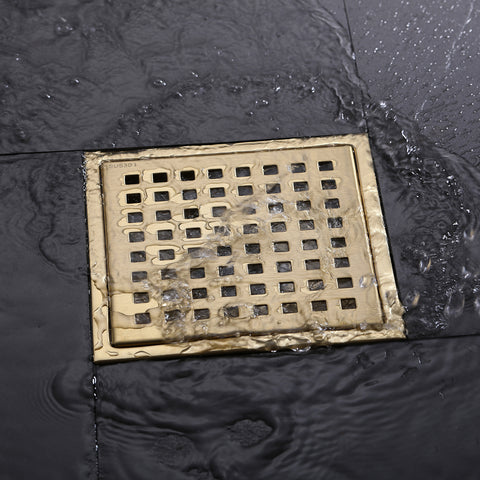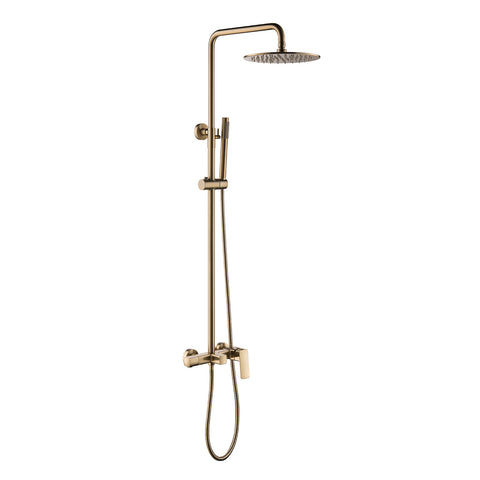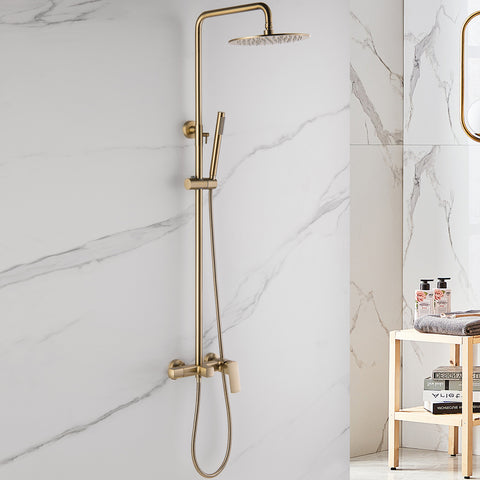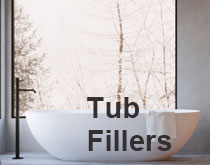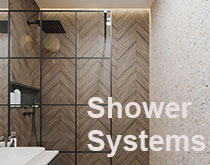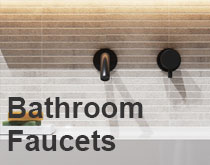How to Choose the Right Shower System: A Complete Guide for Your Bathroom
Choosing the ideal shower system for your bathroom is essential for long-term comfort, efficiency, and daily satisfaction. With countless configurations, technologies, and installation types available today, selecting the perfect shower can feel overwhelming. The right system should balance performance, aesthetics, water usage, and compatibility with your home’s plumbing.
To help architects, homeowners, and interior designers make informed decisions, this guide breaks down the most important factors to consider—whether you’re upgrading an existing bathroom or designing a luxury walk-in shower from scratch.

Electric, Gas, or Solar Shower?
Choosing the right heating system is the foundation of good water performance. Each option affects temperature stability, water pressure, efficiency, and long-term cost.
Gas-powered showers typically deliver the strongest water pressure and consistent temperature. They heat water quickly but may use slightly more water because of ignition delay. They are excellent for family bathrooms and homes prioritizing comfort.
Electric showers heat water instantly and are easier to install. However, they may offer lower water pressure depending on your home’s electrical setup. They are ideal for smaller bathrooms or compact apartments.
Solar-heated showers are the most energy-efficient and eco-friendly option. They require existing solar infrastructure but dramatically reduce long-term running costs. Perfect for sustainable homes or off-grid projects.
Before choosing, discuss the user’s priorities: Do they prefer cost savings, high water pressure, or environmental sustainability? Each heating method excels in different scenarios.
Check Water Pressure
Water pressure determines which shower systems you can use and how well they perform. Low water pressure can limit your choice of rainfall heads or high-flow models, while excessive pressure can damage components without a regulator.
Homes and low-rise buildings usually have stronger, more stable pressure. High-rise apartments, however, may require a pump, booster, or pressure-assisted system for optimal shower performance.
If your home has:
- Low pressure: Choose pressure-boosting showerheads, pumps, or smaller showerheads for balanced flow.
- High pressure: Most standard shower systems perform well, but consider installing a regulator for safety.
- Variable pressure: Thermostatic systems maintain stable temperature despite pressure fluctuations.
Wall-Mounted vs. Ceiling-Mounted Showers
Wall-Mounted Shower
The most common and practical option, wall-mounted showers are ideal for smaller bathrooms or those with plumbing embedded in the wall. They allow easy installation and maintenance. The length and angle of the shower arm significantly influence spray coverage, making them suitable for compact or irregular layouts.

Ceiling-Mounted Shower
For spa-like luxury, ceiling-mounted showers offer full overhead rain-style coverage and a seamless aesthetic. Ideal for walk-in spaces or central shower zones, they create an immersive experience but require plumbing routed through the ceiling.
Ceiling-mounted models work best with ceiling heights of 2.4–2.5m. Additional support, a cover plate, and moisture protection are required for installation.
Shower Flow Rate
Flow rate (liters per minute) determines the feel of your shower—gentle and eco-friendly, or strong and invigorating. Standard showers range from 6–60 L/min. Higher flow rates require stronger water pressure and typically larger heaters.
Key considerations:
- Eco-models: Save water without compromising on experience using air-infused or pressure-boosting technology.
- Standard models: Suitable for most households with moderate water pressure.
- High-flow luxury systems: Best for rainfall heads or body jets—ensure your water heater’s capacity matches the demand.
Material and Maintenance
Choose durable materials like solid brass or stainless steel to prevent corrosion, leaks, and long-term wear. These metals ensure stability, especially in high-moisture environments. Look for models with silicone anti-limescale nozzles to reduce calcium buildup and simplify cleaning.
Maintenance tip: Regularly wipe down nozzles and surfaces to prevent mineral deposits in hard water areas.
Style and Design
Your shower system is both a functional fixture and a visual statement. Round showerheads offer a timeless, soft look, while square and rectangular shapes complement contemporary, minimalist bathrooms. Popular finishes include brushed gold, matte black, chrome, and rose gold—each adding its own personality and tone to the space.
Ultimately, a high-quality shower system is more than just a bathroom fixture—it’s a daily luxury, a design focal point, and a long-term investment in comfort. Choose wisely, and elevate your shower experience every single day.
